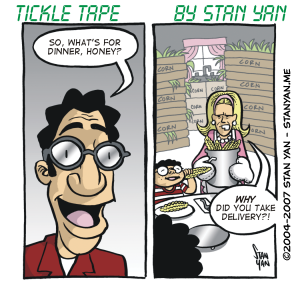Winning traders have learned to control their impulses. They are calm and relaxed. They are not riddled with self-doubt or self-reproach. They can make trades intuitively and effortlessly. And they show extreme self-control. Rather than give in to their urges, they formulate a trading plan and they stick with it. Depending on your personality, you may have difficulty controlling your impulses. But whether you find discipline easy to control or difficult, there is a lot you can gain more control.
The most common way traders act impulsively is by abandoning their trading plan. Once you have outlined a specific plan in terms of when to enter and exit a trade, it is vital to follow it. But it is difficult to do. It seems easy when you devise the plan, but while in the midst of a trade, it can be hard to stay with it. At any given point, you may look at the market action and think, “there’s no way my plan can work.” If you are an extremely seasoned trader, you may have the experience and judgment to abandon your plan when you see it isn’t going to work. Novice traders, in contrast, tend to abandon their plan prematurely, and regret it later when they find that had they been able to stick it out a little longer, they would have made a greater profit. It may be hard, but novice traders must fight the impulse to close out a trade prematurely.
The first step to gaining impulse control is to identify the reasons you want to control your impulses, in other words, the downside of abandoning your trading plan. The most common reason traders desire to stay with their trading plans is to maximize profits. The profits on winning trades must compensate for losses on losing trades. Following a well-defined trading plan usually insures profitability overall. You will have an easier time sticking with your plan if you frequently remind yourself that in the big picture, following your trading plan will allow you to trade more profitably. You may even want to write it down on a post-it note and stick it on your screen, so that while you are struggling to fight an impulse while trading, you’ll remember why you are doing it: The more discipline and self-control you achieve, the more profitable you’ll trade in the long run.
Many times impulses are difficult to control because of emotional states. When you are guilty, frustrated, or afraid is when you may have the most trouble controlling your impulses. By identifying the emotions that precipitate an impulsive move, you can gain more control. By self-monitoring your emotions, you can identify how they lead to impulsive decisions. You may feel guilty because you feel that you should not risk the money you are trading. By refuting this belief, you can alleviate guilt and be able to stick with your plan. You can similarly identify how fear and frustration precede impulsive decisions, and practice controlling these emotions in order to increase your overall ability to remain calm and disciplined.
Building up self-control skills takes practice. Don’t be disappointed if it doesn’t happen overnight. It is much like losing weight. What happens when you eat an extra piece of pie at dinner and do it again and again? Once you lose control, you have to work to get it back. You must do it little by little. It takes time and you may slip, but if you keep at it, with time and practice you will build up your self-control skills.


